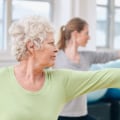The burden of wanting to fit into what society considers beautiful can be absolutely overwhelming. It can cause mental health problems such as anxiety, depression, body dysmorphia and eating disorders. It can also push people, especially young women, to look for other ways to achieve this “perfect image” through surgery. Studies show that beauty standards directly contribute to anxiety and depression.
They can cause body dysmorphia and eating disorders. They can fuel low self-esteem, self-harm and even suicide. All these conditions have increased in recent years, and they are all unequivocally related to beauty standards. Media images and beauty standards are a highly influential tool for defining and evaluating body image.
By reviewing celebrity wallets and photos posted by friends and acquaintances on a social network, a person comes to certain conclusions about desirable appearance. Although this may lead to a growing aspiration to overcome oneself, in many cases, the consequences are quite unfavorable. These include severe eating disorders, numerous insecurities, and a decline in overall satisfaction with life. Therefore, understanding the effects of beauty standards is crucial to generating a reasonable attitude towards the body among people and making society healthier and happier overall.
For example, photographs of attractive iconic figures, bloggers, or random people can inspire people to work diligently to improve their appearance. So while “clean beauty” may be free of so-called “toxic” substances, it ultimately sends the same toxic messages as the rest of the industry, and what's the use of “better ingredients” if they're exceeding the beauty standards of foolishness? Most people find images of iconic figures and misleading advertisements that arouse admiration every day on the Internet. Third, negative body images caused by social networks or advertisements push people to undergo cosmetic interventions despite the possible ones. Many people also share their photos, trying to do their best, and sometimes mislead their followers.
It is evident that, due to the promotion of diversity, beauty standards are expanding and many people are changing their perception of various issues. Unilever is one of the world's leading suppliers of beauty, personal care, home care and refreshing products for 26% of beauty products, with sales in more than 190 countries and products used by 3.4 billion people every day. Many people are also deeply concerned about the number of “likes” their posts get, and this can lead to many adverse outcomes, such as anxiety, stress and low self-esteem. Created in collaboration with the Center for Appearance Research at the University of West England, the world's largest research group that focuses on the role of appearance and body image in people's lives, the Dove Self-Esteem Project tools are academically validated and can be downloaded for free.
People often lack the resources and knowledge to successfully improve their appearance; therefore, they seek shortcuts that lead to adverse health consequences. People see beautiful faces and attractive bodies of iconic fifty-year-old figures in the media and want to look the same way with minimal effort. This has a profound impact on the way people think and feel about themselves and the people around them. Images of fashion models wearing beautiful makeup and showing total confidence push consumers to buy products that can help them look and feel better.
Celebrities and advertisements persuade young people to seek specific body images, regardless of their inherent characteristics. .



Leave a Comment